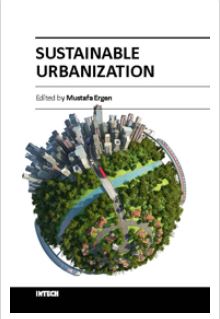Chapter 5 - Towards Sustainable Sanitation in an Urbanising World
 |
livre coll. Open Access Books Sep 2016 ; 21 pages
Aut. Christoph Lü̈thi & Philippe Reymond & Samuel Renggli
Ed. InTech - Rijeka ; Isbn: 978-953-51-2652-2
Téléchargeable sous format: PdF
Téléchargeable chez l'éditeur
Page de présentation d'un éditeur
Abstract:
Urban sanitation in low‐ and middle‐income countries is at an inflection point. It is increasingly acknowledged that conventional sewer‐based sanitation cannot be the only solution for expanding urban areas. There are other objective reasons apart from the lack of capital. The lack of stable energy supplies, of spare parts and of human resources for reliable operation, and the increasing water scarcity are factors that seriously limit the expansion of centralised systems.
This chapter extract from the book "Sustainable Urbanization" argues that a new paradigm for urban sanitation is possible, if the heterogeneity within developing cities is reflected in the implementation of different sanitation systems, adapted to each urban context and integrated under one institutional roof. This new paradigm entails: (1) innovative management arrangements; (2) increased participation and the integration of individual, community and private sector initiatives; (3) thinking at scale to open new opportunities; (4) improved analysis of the situation and awareness raising. Moving beyond conventional approaches towards sustainable urbanisation needs to follow both a top‐down and a bottom‐up approach, with proper incentives and a variety of sanitation systems which, in a future perspective, will become part of the ‘urban ecosystem’
Publics-Cibles:
Mots clefs: |
assainissement (CI) (DT) (OP) (ope) , boues (gestion des ) (CI) (DT) (OP) (ope) , urbain (CI) (DT) (OP) (ope) , urbanisme (CI) (DT) (OP) (ope) |
Editeurs/Diffuseurs: |
|
InTech
-
InTechOpen - Rijeka - Croatie |
EAWAG
-
Institut Fédéral Suisse des Sciences et Technologies de l’Eau - Dubendorf - Suisse |
En cas de lien brisé, nous le mentionner à communication@pseau.org